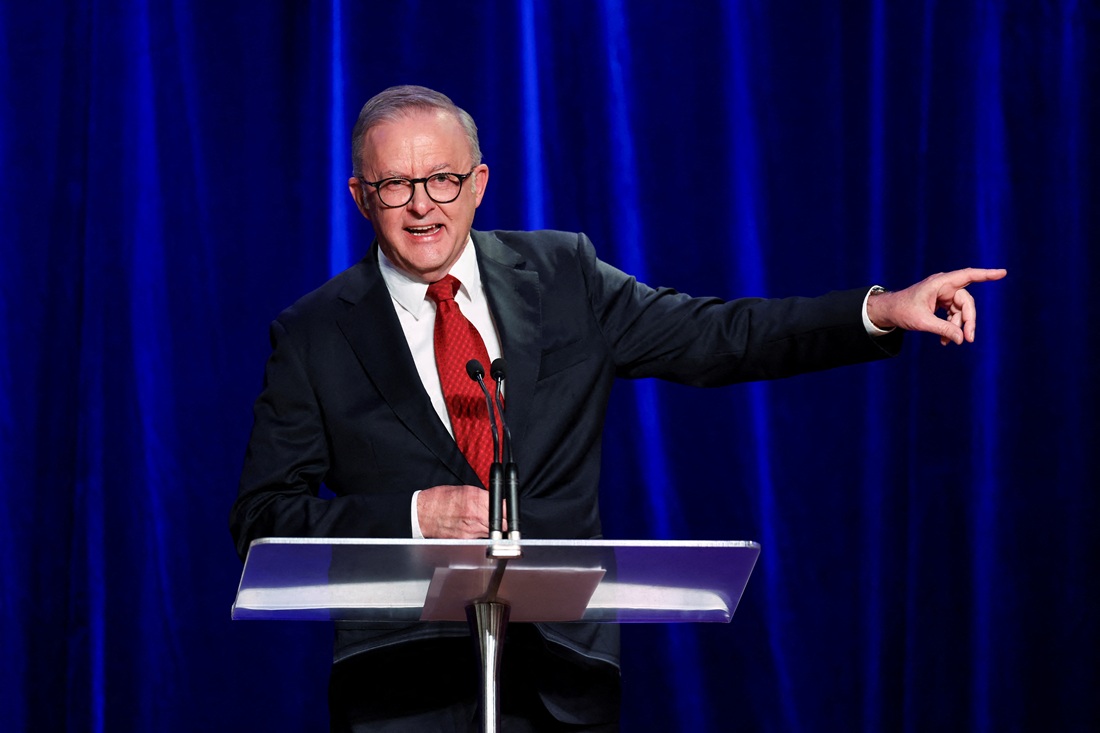During the Pacific Islands Forum Leaders’ Meeting (PIFLM) in Honiara on Wednesday, September 10, 2025, Australian Prime Minister Anthony Albanese held a press conference that was exclusively for Australian media, deliberately excluding journalists from Pacific Island nations.
This decision raised significant concerns throughout the region among media professionals.
The press conference was hosted at a sports facility funded by China, which further emphasised the implications of the exclusion.
When Pacific journalists requested clarification, Mr Albanese replied, “I have no idea what you are talking about, mate,” providing minimal acknowledgment or explanation.
Media organisations across the Pacific, including ABC News, Fiji Sun, and FBC News, pointed out that the exclusion was both confusing and detrimental to the representation of regional media.
Wider consequences
By neglecting Pacific media, the event undermined essential democratic principles.
The regional press plays a vital watchdog role, promoting transparency, accountability, and public access to crucial information.
Omitting them not only weakens trust but also implies a lesser regard for regional perspectives in shaping Pacific stories.
The choice conveyed an unintended signal that Australia might prioritise national image over regional inclusiveness.
In a time when Pacific nations are asserting their sovereignty amidst escalating geopolitical tensions, particularly between China and traditional allies like Australia, trust and fairness have never been more critical.
Historical context
This incident is not an isolated case.
Last year, during the forum in Tonga, there was a breach involving a “hot mic” with Mr. Albanese and US officials, which also raised concerns about media access and ethics.
In 2018, Nauru prevented ABC News from attending and covering the Forum.
Pacific leaders and civil society have consistently pushed for inclusive and respectful engagement.
The exclusion of regional journalists may be perceived not merely as a logistical error but as a dismissal of their rightful role, a decision likely to attract criticism and damage diplomatic goodwill.
Its not just a singular error, it highlights deeper issues regarding media rights, regional inclusivity, and power dynamics.
This action undermines a core democratic principle of media freedom.
Journalists in the pacific already encounter restrictions, denying access to local press not only stifles essential reporting but also indicates unequal treatment.
Diplomatic insensitivity
Restricting regional media seem to be an approach threatens to reinforce a narrative that Australia is more focused on controlling its own story than on being a responsible regional partner to Pacific communities.
The decision to exclude Pacific journalists from a forum presser intended to promote regional solidarity not only heightens distrust but also marks a significant low point for foreign relations.
The Pacific Islands News Association (PINA) has highlighted the essential role that regional journalists play in crafting Pacific narratives, insisting they should never be marginalised at their own events.
By sidelining them in favour of Australian media, the message conveyed is one of exclusion rather than inclusivity and respect.
Prominent Pacific journalists have characterised this action as “colonial in tone,” indicating that Australia risks being perceived as a nation that dictates rather than collaborates.
Some analysts have drawn comparisons to China’s approach to media management, cautioning that if Australia restricts access in the Pacific, it blurs the lines between democratic allies and authoritarian regimes.
Australia has historically positioned itself as the preferred partner in the Pacific, emphasising principles such as transparency, democracy, and freedom of expression.
Limiting access to Pacific media undermines this narrative and poses a risk of alienating regional audiences.
Media associations
As we await a response from the Media Association across the Pacific regarding this issue, it is essential to recognise that climate action, security collaboration, and development support all depend on trust.
When journalists from the Pacific are barred from access, it conveys to the people of the Pacific that their perspectives are of lesser importance, even during their own regional gatherings.
This fundamentally undermines the initiatives aimed at fostering trust, ensuring accountability, and addressing the erosion of confidence between foreign entities and the Pacific media sector.
China’s edge
As Australia struggles with its image, China might find it simpler to portray itself as more attuned to the sensitivities of the Pacific.
Symbolic actions, such as China’s investment in the stadium where this issue arose, enhance the distinction.
The Pacific Islands Forum is more than just another diplomatic meeting; it serves as the foremost platform for Pacific voices.
When journalists from the Pacific are excluded from their own summit press events, it prompts troubling inquiries about who is controlling the narrative.
If Australia genuinely wishes to be regarded as a reliable partner instead of an overbearing neighbour, it needs to regard Pacific media as essential contributors to the region’s democratic dialogue.
- Jone Salusalu is the Communications and Media Officer at the Social Empowerment and Education Programme (SEEP). The views expressed in this commentary is solely of the writer and does not express the view of SEEP or this newspaper.



